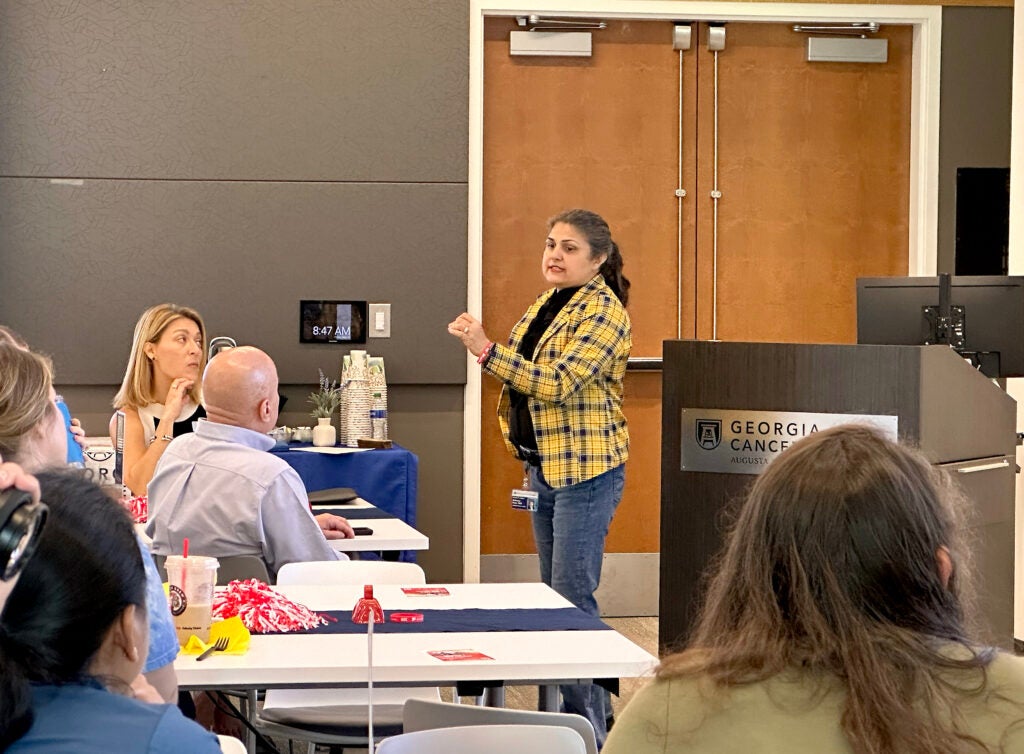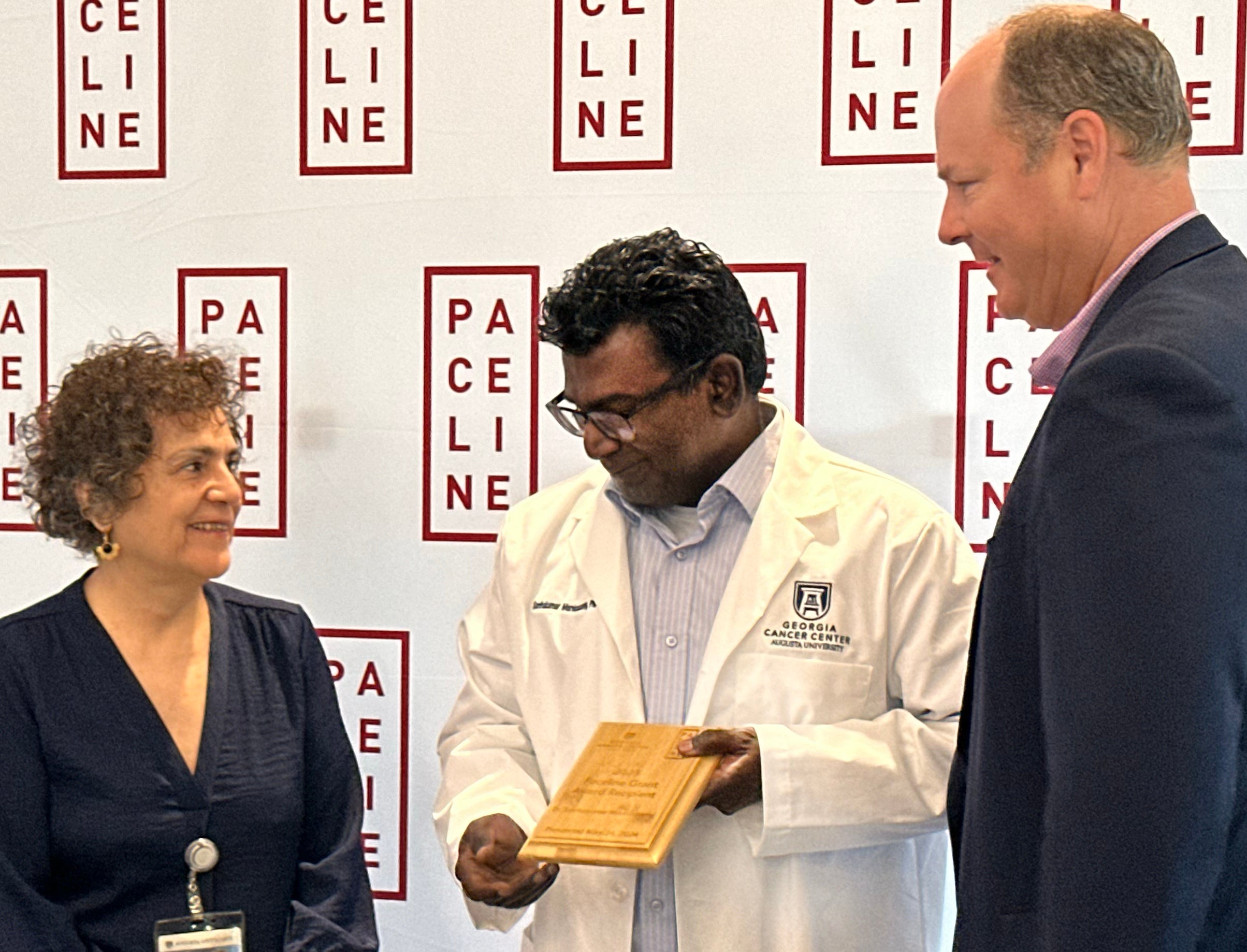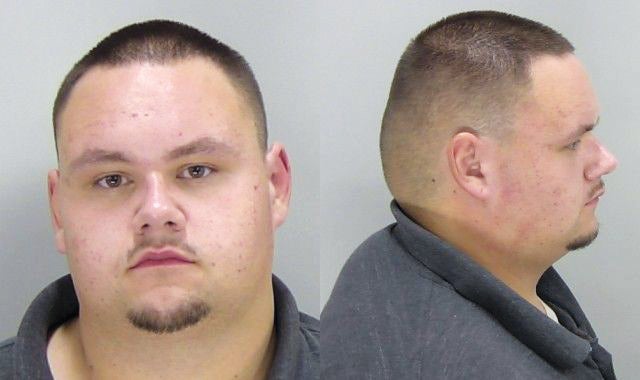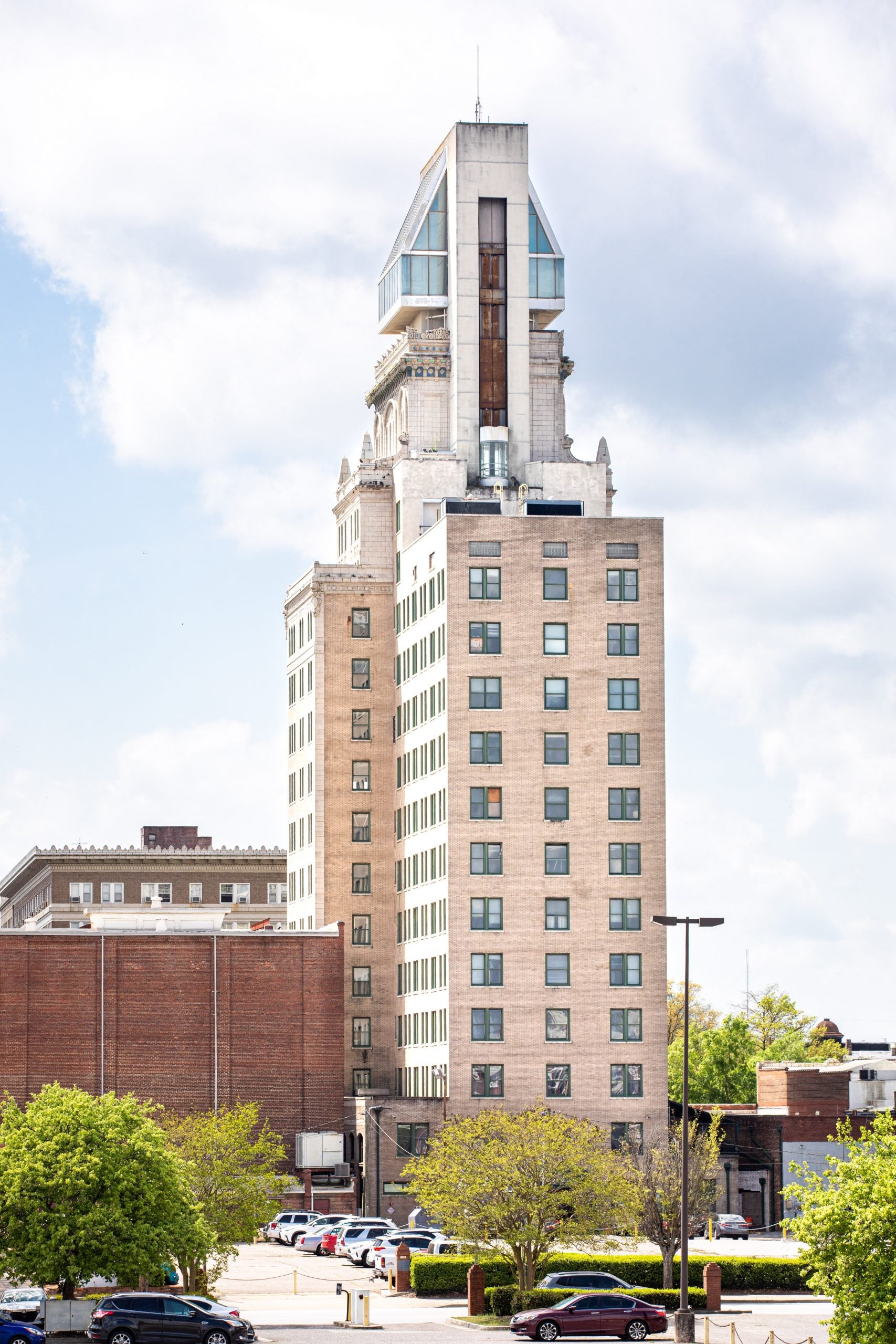Paceline, the fundraising arm for cancer research of the Georgia Cancer Center, announced grants to six university researchers at a Friday ceremony.
“The work our scientists do in their labs relies on the passion, determination, and generosity of each team and individual who took part in Pace Day Weekend 2023,” said Jorge C. Cortes, director of the Georgia Cancer Center at the Medical College of Georgia.
MCG cancer researcher Yukai He said Paceline’s fundraising serves as an inspiration for his work.
“As a cancer researcher at the Georgia Cancer Center, I really feel excited about the huge potential of this Paceline campaign,” he said.
“This is the reason I support this event year after year. Paceline not only provided the seed money for my research to jump-start the work, but it also is a collective effort to make a team. That is the spirit we should have in research.”
Balveen Kaur, head of the Kaur Lab and associate director of research at the center, said Friday that grant recipients have been able to turn Paceline funds into millions in National Institutes of Health and other major research project grants.
“Research is a very slow process, so asking people to show an outcome in one year is setting the bar very, very high. Uphill,” she said.
Attendees rang cow bells and celebrated the work of the scientists.
According to a statement, a review committee engaged in a rigorous peer-review process to select the grant recipients. The recipients are:
- MCG tumor immunologist Yan Cui and dental professor Zoya Kurago, for a project titled “epithelial-stromal cell interactions as drivers of pre-cancer progression to cancer – the application of single-cell transcriptomics in longitudinally-sampled oral pre-cancer.” Kaur said Cui transformed a $50,000 grant into $3.5 million in funding.
- Infectious disease and cancer center professor Santhakumar Manicassamy, for research targeting the “retinoid-X receptor alpha-signaling network in combination with immunotherapy to induce robust anti-tumor immune responses.” His work has “so many applications, it will probably open up a completely new avenue for drug targeting to reach our patient populations,” Kaur said.
- Upasana Sahu, associate director of basic science at the cancer center, for development of a next-generation oncolytic HSV for dual targeting of AKT, which is the protein kinase B, and ERK, the extracellular signal-regulated kinase, signaling in glioblastoma.
- Sara Murphy, for research on how an antibody targeting CD73 augments oncolytic herpes virus efficacy in glioblastoma.
- Nagendra Singh, for research on a UFL1 and immune checkpoint blockade.
- Meng-Han Tsai, for a study of colorectal cancer risk perceptions and outcomes among early-onset colorectal cancer survivors.
The year-round fundraising effort culminates in an Oct. 13, 2024, bike ride known as “Pace Day,” which features new cycling challenges this year. Its sixth year, the effort has raised $2 million for cancer research, Communications Director Cayla Long said.
“Crucially, Paceline maintains its 100% model, whereby every single dollar donated is truly being invested as intended. The ongoing support Paceline receives from its founding partner, the Medical College of Georgia Foundation, makes this promise possible,” Paceline President Martyn Jones said.










